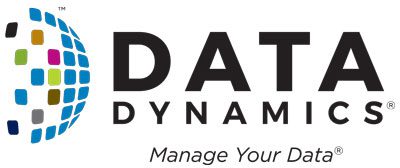The 21st century has seen incredible advancements in the pharmaceutical industry, and these innovations are only continuing to grow. Companies that fail to keep up with the latest technological advancements risk falling behind their competitors. One area that has seen significant growth is advanced analytics. Advanced analytics is a form of data analysis that uses complex statistical methods to uncover hidden patterns and trends. It harnesses the power of machine learning and algorithms to analyze vast amounts of data in a fraction of the time it would take using traditional methods, thereby improving decision-making, optimizing processes, and predicting future outcomes.
In this blog post, we’ll explore how advanced analytics in the cloud can help transform your business and give you a competitive edge in today’s fast-paced marketplace. Get ready to discover why harnessing data-driven insights is crucial for revolutionizing growth within the pharma industry!
Introduction: What is Advanced Analytics in the Cloud?
Pharmaceutical companies are under immense pressure to develop new drugs and get them to market quickly. The process of bringing a new drug to market is long and costly, so any way to speed up or streamline the process is extremely valuable. Advanced analytics can help identify areas where the process can be improved, such as by reducing clinical trial failures or improving patient adherence rates. Additionally, it can be used to predict how well a new drug will perform before it even enters clinical trials. This information can save pharma companies millions of dollars by helping them make better decisions about which drugs are worth pursuing.
The cloud has become an essential tool for businesses of all types, and pharma companies are no exception. Advanced analytics in the cloud is a set of tools and services that enable pharmaceutical companies to collect, process, and analyze data more efficiently. This cutting-edge technology harnesses the computational capabilities of the cloud to swiftly and effectively process and scrutinize vast amounts of data using techniques such as machine learning, data mining, and predictive modeling. Cloud-based analytics platforms are capable of handling enormous datasets and provide businesses with the opportunity to extract valuable insights from their data, promoting superior decision-making, heightened efficiency, and ground-breaking innovation. Particularly within the pharmaceutical industry, it proves to be an exhilarating resource for scrutinizing clinical trial data, detecting patterns in medical images, and forecasting drug efficacy and toxicity.
While advanced analytics in the cloud offers many benefits for pharma companies, it also comes with some challenges. One major challenge is ensuring that data is secure and compliant with regulations such as HIPAA. Another challenge is dealing with the volume of data that is being generated. To overcome these obstacles, pharma companies must collaborate with knowledgeable data management software providers who can assist in optimizing their data and extracting valuable insights from it in a secure and controlled manner.
4 Ground-breaking Ways Advanced Analytics is Transforming the Future of Pharma
While there are several types of advanced analytics techniques in the cloud that can be particularly beneficial for pharmaceutical companies, here are the top four which can help them mitigate some of the most pressing market challenges and stay ahead of the curve:
- Clinical Trial Data Analysis: This involves analyzing large volumes of clinical trial data to identify patterns and gain insights into the safety and efficacy of new drugs. Cloud-based analytics platforms can process and analyze this data much faster than traditional methods, allowing pharmaceutical companies to bring new drugs to market more quickly.
- Medical Image Analysis: This involves using machine learning algorithms to analyze medical images, such as X-rays and MRI scans, to detect anomalies and diagnose diseases. Cloud-based analytics platforms can handle the large volumes of data generated by medical imaging, making it easier for pharmaceutical companies to identify potential drug targets and evaluate the effectiveness of new drugs.
- Pharmacovigilance: This involves monitoring the safety of drugs on the market and identifying potential adverse events. Cloud-based analytics platforms can process large volumes of data from various sources, such as social media and electronic health records, to identify potential safety issues and improve patient outcomes.
- Drug Discovery: This involves using machine learning algorithms to analyze large volumes of data, such as genetic data and chemical structures, to identify potential drug targets and design new drugs. Cloud-based analytics platforms can handle the large volumes of data generated by drug discovery research, making it easier for pharmaceutical companies to bring new drugs to market.
The BIG-5 Benefits
Every year, throughout all R&D phases, pharmaceutical companies amass hundreds of terabytes of data. 80%* of this data is unstructured and comes from various sources, many of which employ different data handling techniques and equipment.
This complicated and distributed web of unstructured data presents two challenges: how to lowers
the cost of keeping and maintaining such a massive amount of data and how to facilitate simple access & analysis to data for academics and collaborators when they need it. Cloud-based analytics platforms have emerged as a powerful tool to mitigate these roadblocks and help them manage large volumes of data efficiently, leading to exciting benefits for pharmaceutical companies.
- Faster and More Efficient Drug Development: Bringing a single drug to market can take over 10 years and $2.6 billion. It is possible to accelerate drug discovery and make it less expensive when access to the right data is available at the right time.
Cloud-based analytics has emerged as a powerful tool in drug development, offering a range of benefits that accelerate the process of drug discovery and development. One of the most significant advantages is its scalability, enabling pharmaceutical companies to handle vast amounts of data processing and analysis. By leveraging cloud resources, companies can perform complex simulations and modeling, process large datasets, and test multiple drug candidates simultaneously, resulting in faster and more efficient drug development.
- Improved Patient Outcomes: Cloud-based analytics has the potential to transform healthcare by improving patient outcomes in several ways. Firstly, it enables better data collection and analysis, which can inform treatment decisions and lead to more effective therapies. Enterprises can access real-time patient data, including medical history, diagnostic tests, and clinical notes, allowing them to make more informed decisions about patient care. Secondly, it facilitates personalized medicine by analyzing patient data and identifying personalized treatment options. By leveraging machine learning algorithms, cloud-based analytics can help healthcare providers predict which treatments are most likely to be effective for a particular patient based on their medical history, genetics, and other factors. Thirdly, cloud-based analytics can enable remote patient monitoring and telemedicine, allowing patients to receive care from the comfort of their own homes. Healthcare providers can collect real-time data from patients, such as vital signs, and use cloud-based analytics to analyze the data and identify potential health issues before they become more serious.
- Increased Cost Savings: Cloud eliminates the need for expensive hardware and IT infrastructure, such as servers and storage devices, as the data is stored and processed on the cloud. This results in significant cost savings for pharmaceutical companies as they do not have to invest in expensive hardware or employ IT staff to manage and maintain the infrastructure. Additionally, it can automate data analysis and reduce the need for manual data processing, freeing up resources and reducing costs. Furthermore, cloud-based analytics platforms can also help pharmaceutical companies reduce the risk of non-compliance and associated penalties by providing a secure and compliant platform for data processing and storage.
- Enhanced Collaboration: Clinical trials alone produce an average of 3.6 million data points, which is three times the data gathered during late-stage trials ten years ago. Pharmaceutical and biotech firms rely on inter-industry and interdepartmental cooperation to create new treatments and improve patient care and boost profits for drug manufacturers. In light of this, pharmaceutical companies are exploring ways to reduce data storage costs and facilitate strong collaboration by utilizing the cloud. In fact, 83% of pharmaceutical companies already use the cloud to strengthen their collaborations. Cloud-based analytics platforms can enable pharmaceutical companies to collaborate more effectively with researchers, clinicians, and other stakeholders by providing a centralized platform for data analysis and sharing.
- Improved Decision-Making: As mentioned above, 80% of the data generated is unstructured. Most companies only analyze 12% of the data they have, which means 88% of the data that is generated goes unanalyzed. However, analyzing this unstructured data through improved downstream automation can drive operational efficiency, next-level risk management, and 10X higher productivity. That’s exactly where the cloud comes to use. By providing real-time insights into drug development, safety, and efficacy, cloud-based analytics platforms can improve decision-making and enable pharmaceutical companies to make data-driven decisions that improve patient outcomes and reduce costs. It can also provide real-time feedback during clinical trials, allowing researchers to adjust the trial design and dosing protocols as needed, helping accelerate drug development and increase the chances of success. Furthermore, cloud-based analytics can help pharmaceutical companies optimize their operations by identifying inefficiencies and opportunities for improvement. By automating data analysis, reducing the need for manual processing, and providing real-time insights, cloud-based analytics platforms can help pharmaceutical companies make better decisions that improve efficiency and reduce costs.
Case Studies of Enterprises That Have Used Advanced Analytics To Grow
In the United States alone, prescription drug spending is projected to reach $610 billion by 2021, up from $457 billion in 2015.1 To sustain this level of growth and meet the needs of an aging population, the industry must find new ways to improve efficiency and drive innovation. Here are four examples of how leading pharmaceutical companies are using advanced analytics to drive growth:
- Merck & Co.: Merck & Co. has also partnered with AWS to create a cloud-based platform for drug discovery and development. The platform, called Merck Biopharma Cloud, enables scientists to analyze large datasets and develop personalized medicines.
- Pfizer: Pfizer has partnered with Amazon Web Services (AWS) to create a cloud-based platform for drug discovery and development. The platform, called the Pfizer Research Cloud, enables scientists to collaborate and analyze large datasets to identify potential drug targets and develop new therapies.
- Bristol-Myers Squibb: Bristol-Myers Squibb has partnered with Google Cloud to create a cloud-based platform for drug discovery and development. The platform, called the BMS Analytics Platform, enables scientists to collaborate and analyze large datasets to identify potential drug targets and develop new therapies.
- Novartis: Novartis has partnered with Microsoft to create a cloud-based platform for drug discovery and development. The platform, called the Novartis Data & Digital Innovation Center, enables scientists to analyze large datasets and develop new therapies.
The First Step Towards Valorizing The Cloud is DATA
Data management is the backbone of any successful business, providing the critical foundation upon which all strategic decision-making rests. Ensuring that data is collected, stored, organized, and maintained with accuracy and efficiency is the essence of effective data management. It’s essential to ensure that data is secure and accessible, and that it can be analyzed in real-time to inform and drive business outcomes. Before moving to the cloud, organizations must have a robust data management strategy in place that addresses the complexities of data governance, quality, security, and integration. Effective data management can mean the difference between success and failure in today’s fast-paced business landscape, and it’s a thrilling challenge for any data-driven organization to undertake.
Here are five several key pillars that are critical to a successful data migration to the cloud:
- Planning and Preparation: A successful data migration requires a detailed plan that includes identifying the data that needs to be migrated, the target cloud environment, and the migration strategy. It is also important to assess the risks and challenges associated with the migration and establish a project timeline and budget.
- Data Assessment and Validation: Before migration, it is important to assess the quality and consistency of the data to ensure that it can be effectively migrated to the cloud. This includes identifying any data dependencies, inconsistencies, or errors that need to be resolved prior to the migration.
- Security and Compliance: It is essential to ensure that the data being migrated to the cloud is secure and compliant with applicable regulations such as HIPAA, GDPR, and PCI DSS. This includes implementing appropriate security controls such as encryption, access controls, and monitoring.
- Testing and Validation: Prior to migration, it is important to conduct thorough testing and validation to ensure that the data is successfully migrated and that there is no loss or corruption of data during the migration process.
- Monitoring and Optimization: Once the data has been migrated, it is important to continuously monitor and optimize the cloud environment to ensure that it is performing optimally and meeting the needs of the organization. This includes monitoring performance, availability, and capacity utilization and making adjustments as necessary.
To help enterprises accelerate their journey to the cloud in an efficient, seamless and cost-effective manner, Microsoft has introduced the Azure File Migration Program – a collaboration between Microsoft and Data Dynamics that helps customers move their data into the Azure cloud at ZERO license cost! Through this program, Microsoft and Data Dynamics aim to help organizations address some of their most critical challenges in the cloud migration lifecycle, such as cost, speed, talent, and risk. Click here to know more.
Conclusion
Advanced analytics and cloud-based solutions are revolutionizing the pharma industry by offering significant cost savings, improved efficiencies, and better decision-making. These technologies provide organizations with insights into customer behaviour and trends to help them understand their target markets. As drug companies move towards a more data-driven approach, leveraging advanced analytics in the cloud can provide an invaluable edge for success. With its innovative ability to rapidly process large amounts of data at scale, this technology promises to become even more beneficial as pharma companies continue to improve upon existing systems and processes to stay competitive.
To discover more about how Data Dynamics can help you transform and harness the power of cloud-based analytics, click here or contact us at solutions@datdyn.com or call us at (713)-491-4298 or +44-(20)-45520800.






